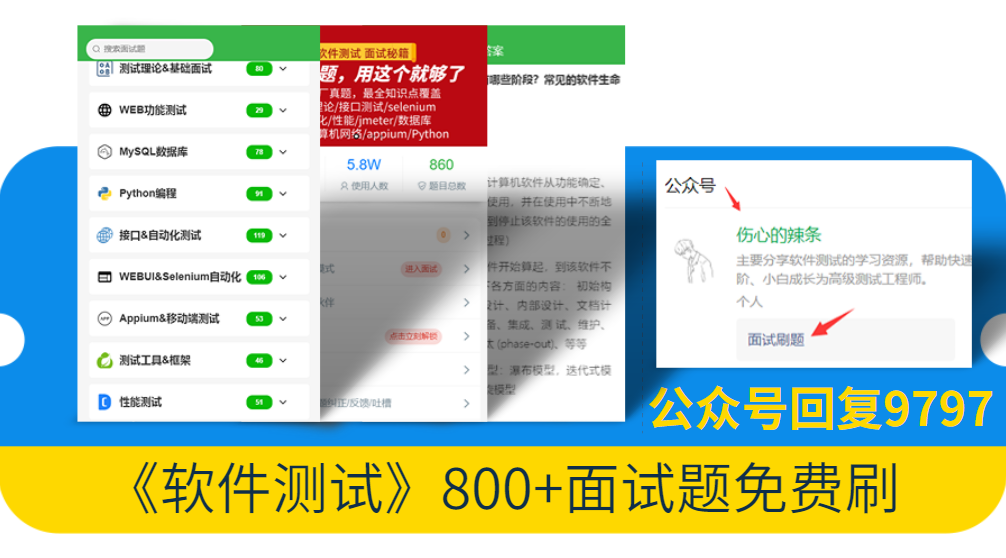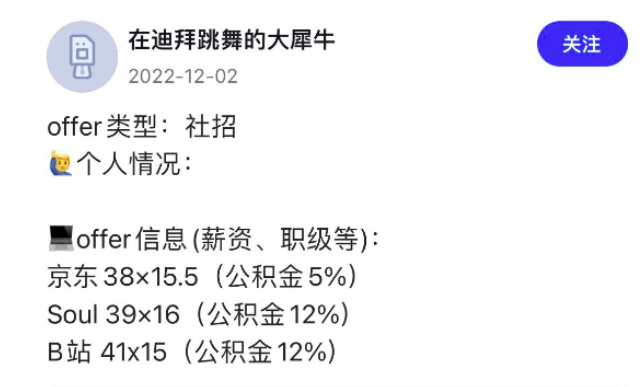
During the process of job hopping, have you ever encountered multiple offers in your hand, but each has its own advantages and disadvantages, and you don’t know how to choose? Below is a screenshot of Maimai.


Here, the editor shares some practical tips for choosing an offer to help you find opportunities that suit you and avoid regrets after joining the job!
Evaluation direction
To choose an opportunity that suits you, you must first analyze the information of each dimension of the offer, and then make a comprehensive evaluation. For general job seekers, the pros and cons of an offer can be weighed from six perspectives.
1. Salary
No matter what industry you are in, salary is always one of the key factors in considering an offer, and salary covers: basic salary + commission + stock + benefits.
-
Basic salary : nothing to say, the more the better.
-
Commission : If there is a commission, and the commission accounts for a high proportion of the salary, it is necessary to consider whether the base of the five social insurances and one housing fund counts as the commission part. For students in the data analysis post, this part is generally not involved.
-
Stocks : Pay attention to whether it is a stock or an option. If it is a stock, you should pay attention to whether you will be given directly how many shares or how much money you will be given, and then convert the money into stocks. If it is the latter, you must clarify the stock price and exchange rate at the time of conversion, which determines your The time of entry, for example: Ali adopts the former, and Tencent adopts the latter. Let’s talk about options. If it is an option, you must consider the current exercise price and the expectation of the future price. At the same time, you must pay attention to the exercise cycle and time point, such as: bytes.
-
Benefits : The benefits of general companies will not vary greatly. But if it is a company like Byte that provides housing subsidies + three meals a month, there can be a few thousand in a month, which needs to be added to the scope of consideration.
2. Work intensity
Work intensity is often directly proportional to salary, so you have to weigh it and choose within the range that your body can support. It is not recommended to exchange health for money. In terms of work intensity alone, there are three points to consider.
-
Job saturation : This determines the density of working hours. At the same time, if there is too much work content, there is a high probability that you will work overtime very late. It is recommended that you ask a few more interviewers during the interview, and check more on third-party platforms such as Maimai some information.
-
Weekday commute time : During the interview, it is recommended to ask about your usual commute time. The key point is "usually" not "regulation". For example: the stipulated end time is 18 o'clock, but everyone arrives at 22 o'clock, then 22 o'clock is the usual situation. In Internet companies, it makes sense to ask about the prescribed working hours, but it is meaningless to ask about the prescribed off-duty hours. Generally, when you ask HR, he will talk to you, but you will also meet some very "professional" HR, and the answer you will get will be: "We get off work at 18:00, and the degree of overtime depends on your work efficiency.. "." (Inner: pointless answer.)
-
Overtime work on weekends : Similarly, you need to ask if you work overtime on weekends. If you work overtime, what is the frequency, whether there are days off or double wages. This will directly affect your offer selection.
3. Working distance
The distance from the unit to the home needs to be considered. On the one hand, the cost of time, saving the time on the road can do a lot of things; on the other hand, the cost of money, whether it is driving or taking a taxi, is quite a lot every month. It can be reimbursed by taxi.
4. Work content
If nothing else, the current job is just a part of your career process. Therefore, you need to consider whether what this job can bring you is consistent with the long-term development direction. Here, there are two main points to consider, one is the content of horizontal work, and the other is the type of product that is vertically responsible.
-
Job content : mainly refers to the core work of the position. It is recommended to ask about the distribution and proportion of the job content during the interview. For example: for data analysis, 40% of the time is responsible for data warehouse construction, 30% of time is responsible for troubleshooting, and 30% of time is responsible for business analysis, etc. For data analysis students, when they first enter the workplace, they can do more basic construction work and be familiar with the basic process; for students who have been in the industry for a period of time, project analysis related content will be more valuable.
-
Product type : Some students will say that as long as the work content matches, it doesn't matter what product you make. In fact, there is a big difference between C-end products and B-end and G-end products; there is a big difference between video-type products and game-type products. It is very important to choose a track that suits you. If you change it halfway, the cost and difficulty will be relatively high.
5. Team situation
The team situation directly affects the comfort level in the future work, and the offer can be evaluated from two aspects, leadership + team.
-
Leadership : On the one hand, it is the ability of leadership, which determines the breadth and depth of what you can learn from them in the future; on the other hand, it is the style of leadership. So choose carefully.
-
Team : Whether the atmosphere of the team is good or bad is crucial to the development and comfort of the work, which needs to be carefully considered.
Some students here may ask, how should I evaluate these two points before I enter the job? I would like to give you a suggestion. In addition to obtaining information during the interview, you can also invite the leader to have a meal in private before joining the job, and learn more about the situation offline. In this relatively relaxed environment, you may have different gains. .
6. Corporate culture
This point may be more important to students who have just graduated, but after a period of social baptism, they may not pay too much attention after they see and come into contact with more things. For example: boiled water culture, blessing culture and so on. There is a lot of information in this regard on Maimai, and students who need it can learn more about it.
What is your current stage?
Having said so many factors that need to be considered when choosing an offer, does it have a standard answer?
No! For students at different stages and with different personalities, the emphasis will be different.
Here I suggest that you list the several factors mentioned above for each offer, and set the weight according to your own concerns, and determine the ranking of the offer through a total score.
Generally speaking, for students who have just graduated, they may pay more attention to: job content, team situation, corporate culture; for students who have worked for a period of time and have a family, they may pay more attention to: salary, work strength, working distance.
Finally: The complete software testing video tutorial below has been sorted out and uploaded, and friends who need it can get it by themselves [Guaranteed 100% free]

Software Testing Interview Documentation
We must study to find a high-paying job. The following interview questions are the latest interview materials from first-tier Internet companies such as Ali, Tencent, and Byte, and some Byte bosses have given authoritative answers. Finish this set The interview materials believe that everyone can find a satisfactory job.

